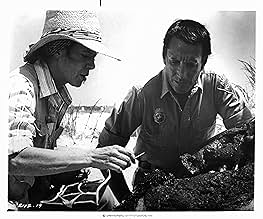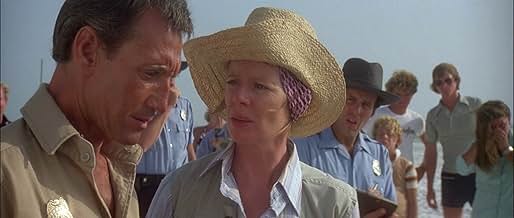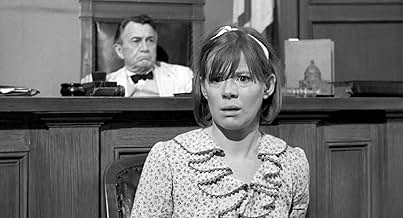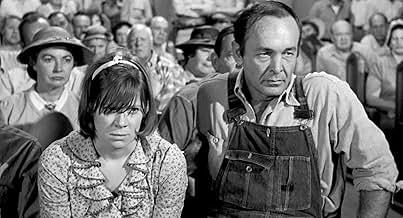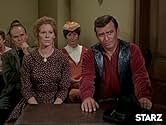Collin Wilcox Paxton(1935-2009)
- Actress
- Writer
Actress Collin Wilcox extended her given name twice over the duration
of her professional acting career -- billing herself as Collin
Wilcox-Horne and Collin Wilcox Paxton, to be exact. She was born in
Cincinnati, Ohio and raised in Highlands, North Carolina, and her
interest in theater was sparked by her parents, Jack H. and Virginia
Wilcox, who founded the Highlands Community Theatre (now known as the
Highlands Playhouse) in 1939. She made her acting debut there as a
young girl and appeared in various productions, including "Our Town".
In later years, Collin would dutifully return from time to time and
perform at her theater alma mater in appreciation.
She attended high school in Knoxville, Tennessee and became the resident ingénue at the regional Carousel Theatre. She majored in drama at the University of Tennessee and studied performing at the Goodman School of Drama in Chicago, Illinois, as well as improv at The Compass (a forerunner of the Second City troupe) where Paul Sills was the director. There, she worked alongside up-and-coming talents Mike Nichols, Elaine May, Barbara Harris, Severn Darden and Shelley Berman. She eventually migrated to New York in 1957 and earned membership with Lee Strasberg's Actor's Studio, who saw great potential in her. She worked there for eight years.
Collins' Broadway debut came a year later with "The Day the Money Stopped", starring Richard Basehart and Mildred Natwick, which earned her the Clarence Derwent Award for "Best Supporting Actress". Slowly garnering notice for her growing quirks and interesting, edgy performances, Collin went on to work with the crème de la crème of Broadway eccentrics including Tallulah Bankhead in "Crazy October", Geraldine Page in "Strange Interlude" and Ruth Gordon in "La Bonne Soup". Neurotic Southern plays such as Tennessee Williams off-Broadway productions of "Camino Real" and "Suddenly, Last Summer" fit her like a glove. In Los Angeles, she appeared in "The Sea Gull" under the direction of John Houseman, "Period of Adjustment" with William Windom and "Getting Out" with Susan Clark. Williams, himself, chose Collin to repeat her leading role as "Isabel" in "Period of Adjustment", when the play went to London.
Collin's film debut came with her brilliant, award-worthy role as young "Mayella", whose Southern white trash teenager, under the duress of her racist father, falsely accuses black man Brock Peters of rape in To Kill a Mockingbird (1962). Her cross-examination courtroom sequence with Peters' hired attorney, Gregory Peck, is unforgettable. No other film role would have the same impact as that once-in-a-lifetime part. Prior to this, "Mockingbird" director Robert Mulligan personally selected the classically-trained Collin as his TV "Frankie" in a strong presentation of The Member of the Wedding (1958). It was her first television role. For such a strong start, her later film career would prove strangely erratic, with a number of offbeat roles in The Baby Maker (1970), arguably her best post-Mockingbird part, opposite Barbara Hershey and Sam Groom, Catch-22 (1970), September 30, 1955 (1977), Jaws 2 (1978), Marie (1985), The Journey of August King (1995) and Midnight in the Garden of Good and Evil (1997), among them.
While Collin graced a number of quality TV programs, such as the mini-movies The Autobiography of Miss Jane Pittman (1974), Foxfire (1987) and Wildflower (1991) along with such established series as Gunsmoke (1955), The Twilight Zone (1959), The Fugitive (1963) and The Waltons (1972), it was the live stage that kept her fiery passion for acting alive. In the late seventies, she returned to her hometown, met and married third husband Scott Paxton, and founded the multi-arts center, "The Highlands Studio for the Arts", in 1981. She served as its artistic director for nine years as well as its resident playwright and improv teacher. She and her husband (who has been president of the Board of Directors) formed a troupe called "The Instant Theatre Company" (ITC) which reaffirmed her family's name in the commitment to its town's local theater. The company lasted for close to a decade before resurrecting again in 2003 with Collin and Rex Reed performing in a presentation of "Love Letters".
Married three times, she has two children, Kimberley and William, from her former husband, British actor Geoffrey Horne, and one child, Michael, from the marriage to Scott Paxton. She died of brain cancer at her North Carolina home in Highlands on October 14, 2009. She was 74.
She attended high school in Knoxville, Tennessee and became the resident ingénue at the regional Carousel Theatre. She majored in drama at the University of Tennessee and studied performing at the Goodman School of Drama in Chicago, Illinois, as well as improv at The Compass (a forerunner of the Second City troupe) where Paul Sills was the director. There, she worked alongside up-and-coming talents Mike Nichols, Elaine May, Barbara Harris, Severn Darden and Shelley Berman. She eventually migrated to New York in 1957 and earned membership with Lee Strasberg's Actor's Studio, who saw great potential in her. She worked there for eight years.
Collins' Broadway debut came a year later with "The Day the Money Stopped", starring Richard Basehart and Mildred Natwick, which earned her the Clarence Derwent Award for "Best Supporting Actress". Slowly garnering notice for her growing quirks and interesting, edgy performances, Collin went on to work with the crème de la crème of Broadway eccentrics including Tallulah Bankhead in "Crazy October", Geraldine Page in "Strange Interlude" and Ruth Gordon in "La Bonne Soup". Neurotic Southern plays such as Tennessee Williams off-Broadway productions of "Camino Real" and "Suddenly, Last Summer" fit her like a glove. In Los Angeles, she appeared in "The Sea Gull" under the direction of John Houseman, "Period of Adjustment" with William Windom and "Getting Out" with Susan Clark. Williams, himself, chose Collin to repeat her leading role as "Isabel" in "Period of Adjustment", when the play went to London.
Collin's film debut came with her brilliant, award-worthy role as young "Mayella", whose Southern white trash teenager, under the duress of her racist father, falsely accuses black man Brock Peters of rape in To Kill a Mockingbird (1962). Her cross-examination courtroom sequence with Peters' hired attorney, Gregory Peck, is unforgettable. No other film role would have the same impact as that once-in-a-lifetime part. Prior to this, "Mockingbird" director Robert Mulligan personally selected the classically-trained Collin as his TV "Frankie" in a strong presentation of The Member of the Wedding (1958). It was her first television role. For such a strong start, her later film career would prove strangely erratic, with a number of offbeat roles in The Baby Maker (1970), arguably her best post-Mockingbird part, opposite Barbara Hershey and Sam Groom, Catch-22 (1970), September 30, 1955 (1977), Jaws 2 (1978), Marie (1985), The Journey of August King (1995) and Midnight in the Garden of Good and Evil (1997), among them.
While Collin graced a number of quality TV programs, such as the mini-movies The Autobiography of Miss Jane Pittman (1974), Foxfire (1987) and Wildflower (1991) along with such established series as Gunsmoke (1955), The Twilight Zone (1959), The Fugitive (1963) and The Waltons (1972), it was the live stage that kept her fiery passion for acting alive. In the late seventies, she returned to her hometown, met and married third husband Scott Paxton, and founded the multi-arts center, "The Highlands Studio for the Arts", in 1981. She served as its artistic director for nine years as well as its resident playwright and improv teacher. She and her husband (who has been president of the Board of Directors) formed a troupe called "The Instant Theatre Company" (ITC) which reaffirmed her family's name in the commitment to its town's local theater. The company lasted for close to a decade before resurrecting again in 2003 with Collin and Rex Reed performing in a presentation of "Love Letters".
Married three times, she has two children, Kimberley and William, from her former husband, British actor Geoffrey Horne, and one child, Michael, from the marriage to Scott Paxton. She died of brain cancer at her North Carolina home in Highlands on October 14, 2009. She was 74.


